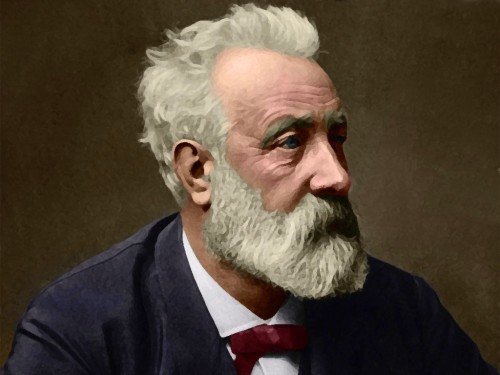
Jules Verne is widely considered to be the father of science fiction. Born in Nantes, France in 1828, Verne's imagination and love for adventure led him to write some of the most enduring and popular novels of all time. His works, such as "Journey to the Center of the Earth," "Twenty Thousand Leagues Under the Sea," and "Around the World in Eighty Days," have captivated readers for over 150 years and continue to inspire new generations.
One of the things that makes Verne's writing so enduring is his ability to blend science and adventure in a way that is both believable and exciting. In "Journey to the Center of the Earth," Verne uses the then-recently discovered theory of plate tectonics to create a thrilling tale of a journey deep into the earth's crust. Similarly, in "Twenty Thousand Leagues Under the Sea," he incorporates the latest scientific understanding of the ocean and marine life to create a fascinating story of a submarine and its crew.
But Verne's writing is not just about science and technology; it is also about the human spirit and the desire for adventure and exploration. In "Around the World in Eighty Days," Phileas Fogg, the protagonist, is driven not by scientific curiosity, but by a bet and a desire to prove himself. The novel is as much about the journey as it is about the destination, and Verne's vivid descriptions of the different places and cultures Fogg encounters on his trip make it a truly immersive reading experience.
Another aspect of Verne's writing that has contributed to its longevity is his ability to appeal to both children and adults. Many of his novels, such as "The Adventures of Tom Sawyer" and "The Adventures of Huckleberry Finn," are considered classic children's literature, but they also contain themes and ideas that can be appreciated by adult readers. For example, "Twenty Thousand Leagues Under the Sea" is a thrilling adventure story, but it also contains commentary on imperialism, industrialization, and the relationship between man and nature.
Verne's impact on literature and popular culture is undeniable. His novels have been adapted into countless films, television shows, and stage productions, and his influence can be seen in the works of many other science fiction authors. The genre of science fiction itself owes a great debt to Verne, as he was one of the first authors to write about futuristic technology and space exploration in a way that was both believable and exciting.
In conclusion, Jules Verne's enduring popularity is due to his ability to blend science and adventure in a way that is both believable and exciting. His novels appeal to both children and adults, and his impact on literature and popular culture is undeniable. His works continue to inspire new generations and will continue to do so for many years to come.








